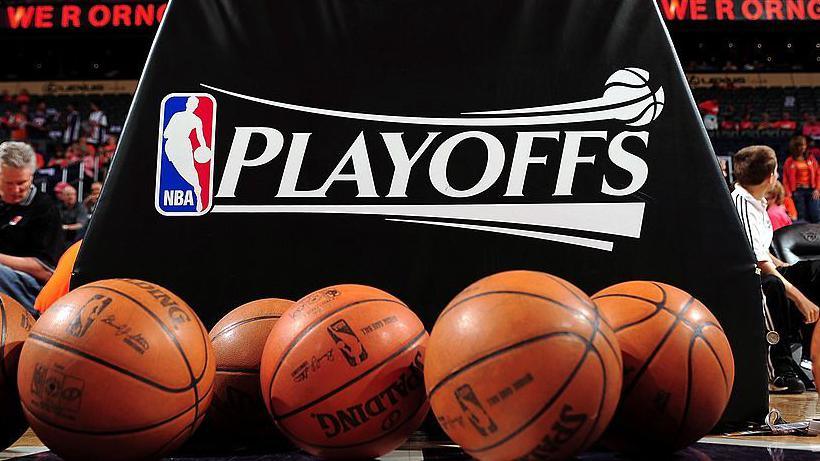How do the NBA play-offs work?

The NBA play-offs begin on 19 April with the start of the finals set for 5 June
- Published
The NBA play-offs are a four-round tournament to determine the winners of the NBA Championship.
Sixteen of the 30 NBA teams - who start the regular season - qualify for the end-of-season format.
The top six with the most wins in each Conference (East and West) automatically secure their spot in the play-offs.
The teams that place between 7-10th then play for the remaining spots in a 'play-in tournament'.
Teams are seeded by their final position in the Conference table.
NBA play-off format
Teams will need to progress through four rounds to claim the NBA title.
First round (16 teams compete)
Conference semi-finals (Eight teams compete)
Conference finals (Four teams compete)
NBA finals (Two teams compete)
In each round, the team with the better regular-season record will gain home-court advantage. That team plays games one, two, five and seven at home.
Each round uses a best-of-seven format. If one team wins the first four games, they will progress to the next round. There could be anywhere between 60-105 games in total, in the play-offs.
In the first round, the top seeds will play the bottom seeds from each Conference.
Series 1 – first seed vs eighth seed
Series 2 – second seed vs seventh seed
Series 3 – third seed vs sixth seed
Series 4 – fourth seed vs fifth seed
The winners of Series 1 and Series 4 play each other in each of the Conference semi-finals, as do the winners of Series 2 and 3.
The winner of those games will meet in the Conference final.
The NBA Finals
The winner of each Conference final will face off in the NBA finals for the Championship.
In 2025, the finals will begin on 5 June, with a potential seventh game pencilled in for 22 June.
More questions answered...
Get in touch
Send us your questions